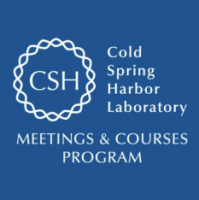CSHL Tutorials in Genomics & Bioinformatics: Genome Variation Course, Nov 10-12
Cold Spring Harbor Laboratory is hosting a course titled, “Tutorials in Genomics & Bioinformatics: Genome Variation,” from November 10 to 12, 2024. This intensive two-day introductory course to genomics and bioinformatics is broken into modules featuring a brief lecture describing the theory, methods and tools to give a broad overview of a given topic and are followed by examples chosen by the instructors that students complete. The core of this class will be analysis of bulk RNA sequencing. Featured resources and examples primarily come from mammalian species, but concepts can be applied to any species with a reference genome assembly. Opportunities are given for students to ask instructors about specific tasks or problems that pertain to their own research.
Topics include:
Designing RNA-Seq Studies
- Best practices in the design of bulk RNA-Seq studies.
- Caveats in analysis workflows
Analysis of High-Throughput Sequence Data Using Galaxy
- Importing FASTQ files
- Importing reference genomes and annotation
- Read quality control and diagnostics
- Read trimming
- Read mapping and read count estimation
Introduction to R
- Basic Syntax
- Data Structures
- Reading input and writing input
- Plotting basics
Analysis of RNA-Seq Read Counts using R/DESeq2
- Diagnostic analyses
- Normalization
- Model fitting
- Testing for differentially expressed genes
- Data visualization (heatmaps, volcano plots)
Genome Browser Resources
- Genome annotation
- Functional genome data
- Bulk Genome analysis
- Gene Set Enrichment and Pathway Analysis
- Gene set enrichment analysis using Gene Ontology and pathway annotations
The course instructors are Delphine Fagegaltier, from Merck, Benjamin King, from the University of Maine, Emily Hodges, from Vanderbilt University School of Medicine, and Steven Munger, from The Jackson Laboratory.
Although the course is open to all on a first-come, first-served basis, it is most beneficial for bench scientists transitioning into projects that require intensive analysis or integration of large data sets. It is not appropriate for those with significant programming or data analysis experience.
For more information see the course website.


